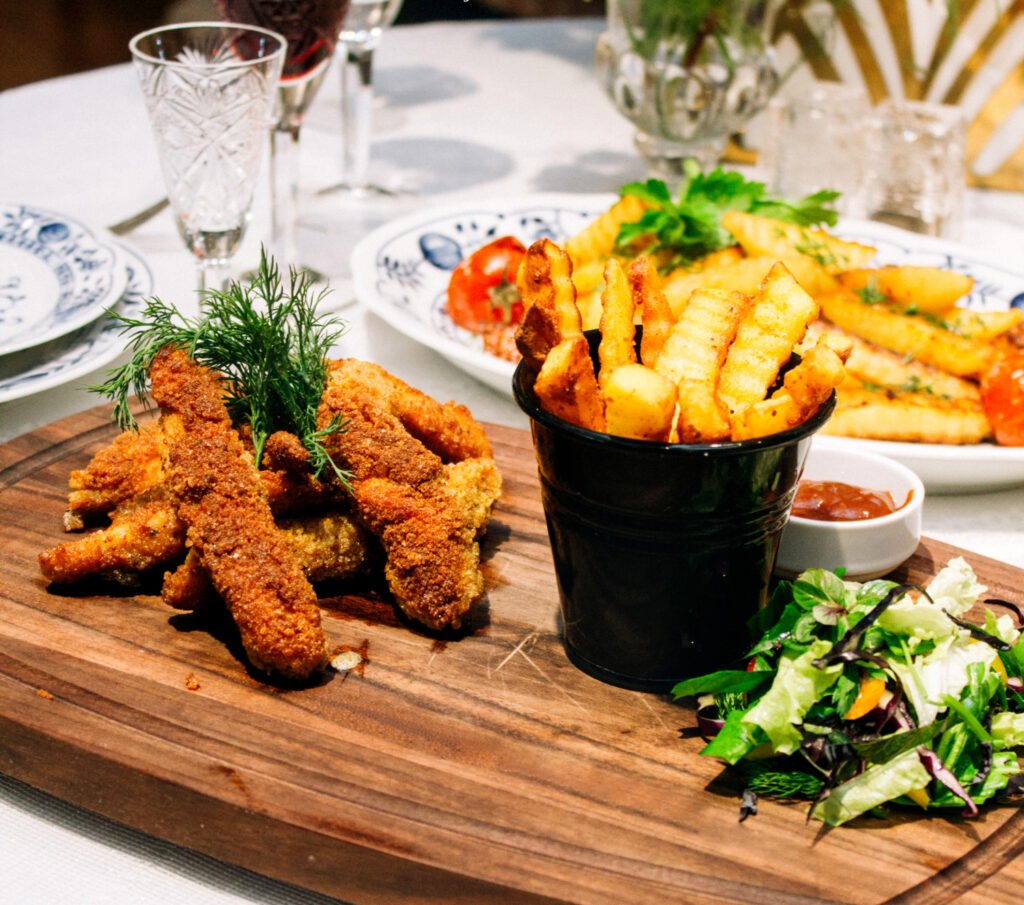
Overview
Managing high blood pressure (hypertension) is crucial for maintaining heart health and preventing severe complications like heart disease and stroke. While several factors contribute to high blood pressure, diet is one of the most important. The wrong foods can cause your blood pressure to rise, putting extra strain on your heart and arteries. This blog post will walk you through the worst foods for high blood pressure and why it’s essential to avoid them if you’re looking to maintain healthy blood pressure levels.
What is High Blood Pressure?
High blood pressure occurs when the force of the blood against the walls of your arteries is consistently too high. It’s often called the “silent killer” because it can go undetected until serious health problems develop. If left untreated, hypertension can lead to heart attacks, strokes, kidney damage, and other life-threatening conditions.
How Does Diet Impact Blood Pressure?
What you eat has a significant impact on your blood pressure. A diet high in sodium, unhealthy fats, and sugar can cause your body to retain water, increasing blood pressure. Over time, these foods can damage the arteries, make your heart work harder, and lead to long-term hypertension. Being aware of the worst foods for high blood pressure can help you make better dietary choices and keep your blood pressure in check
Related: how to control high blood pressure
The Worst Foods for High Blood Pressure
1. Salty Foods (High Sodium Foods)

One of the biggest contributors to high blood pressure is salt. Sodium causes the body to hold onto extra water, which increases blood volume and pressure. Most processed and packaged foods contain excessive amounts of salt, often more than the daily recommended limit of 1,500 milligrams for those with high blood pressure.
Examples of high-sodium foods:
- Processed meats (bacon, sausage, deli meats)
- Canned soups and broths
- Fast foods
- Frozen meals
- Snack foods (potato chips, pretzels)
Healthy Alternative: Opt for fresh, whole foods like fruits, vegetables, lean meats, and low-sodium options. Season meals with herbs and spices instead of salt.
2. Fried and Fast Foods
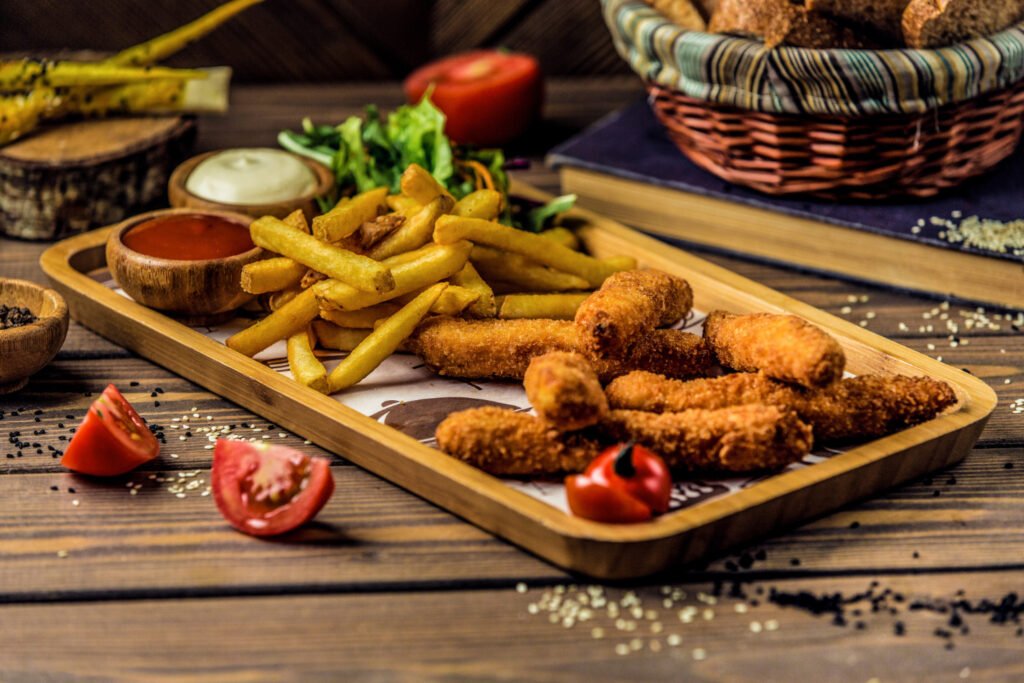
Fried foods, such as French fries, fried chicken, and donuts, are often loaded with trans fats, which raise your bad cholesterol (LDL) and lower your good cholesterol (HDL). These fats clog arteries and force the heart to work harder, contributing to higher blood pressure and increasing the risk of heart disease.
Examples of fried foods:
- Fried chicken
- Doughnuts
- French fries
- Onion rings
Healthy Alternative: Choose baked, grilled, or steamed options over fried foods. Instead of deep-frying, use an air fryer or bake food with a light coating of heart-healthy olive oil.
3. Processed Meats
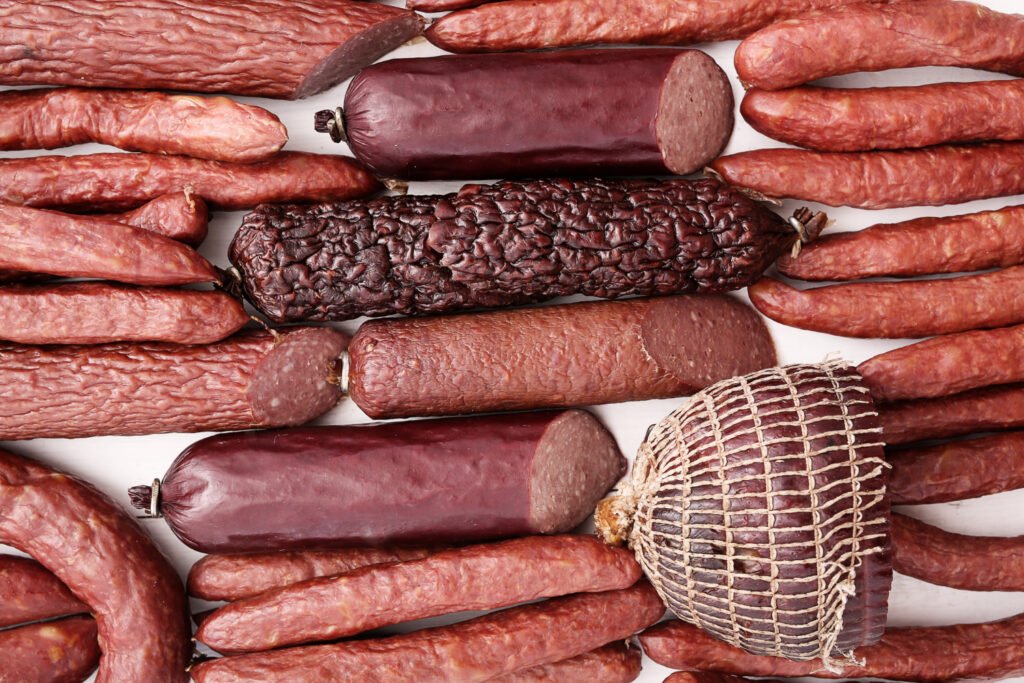
Processed meats like hot dogs, bacon, and deli slices are loaded with sodium and preservatives. Even when labeled as “reduced sodium,” these meats can still contribute to high blood pressure. The combination of high sodium and saturated fats makes processed meats particularly dangerous for those with hypertension.
Examples of processed meats:
- Bacon
- Ham
- Salami
- Hot dogs
Healthy Alternative: Fresh, lean meats like skinless chicken, turkey, or plant-based protein sources are better options. If you must use deli meat, look for low-sodium varieties and consume them sparingly.
4. Sugary Beverages and Foods
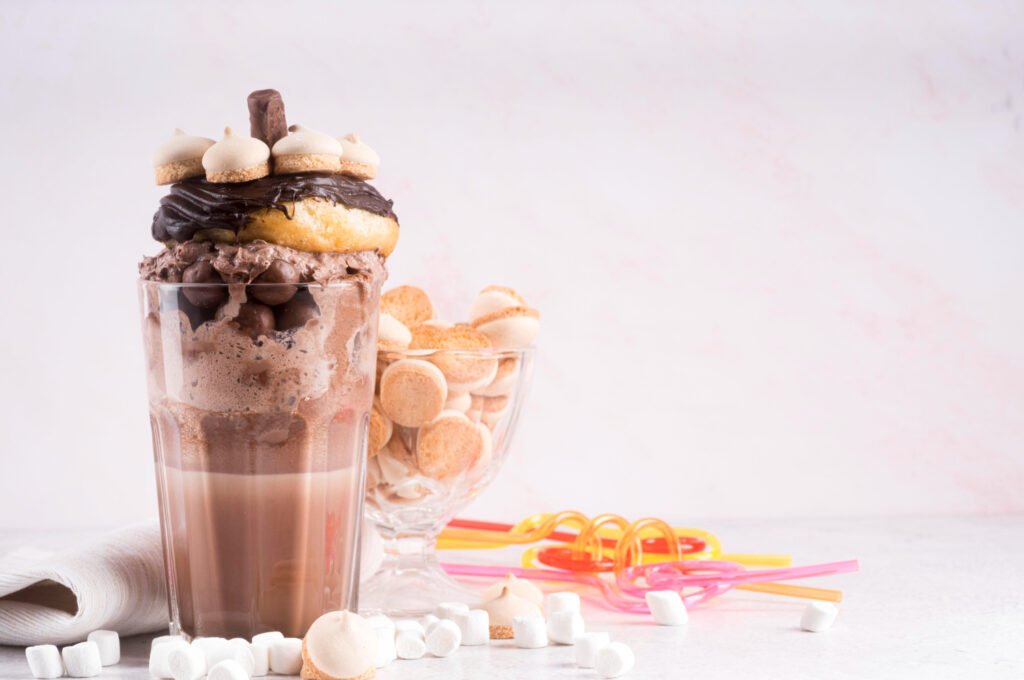
Sugary foods and drinks, such as soda, candy, and baked goods, are high in empty calories that lead to weight gain and insulin resistance, both of which can elevate blood pressure. High sugar consumption can also lead to metabolic syndrome, a condition associated with an increased risk of heart disease and hypertension.
Examples of sugary foods and beverages:
- Soft drinks
- Candy
- Pastries
- Ice cream
Healthy Alternative: Opt for water, unsweetened teas, or flavored water. Satisfy your sweet cravings with fresh fruit, or occasionally indulge in a small piece of dark chocolate, which may have heart-health benefits.
5. Alcohol
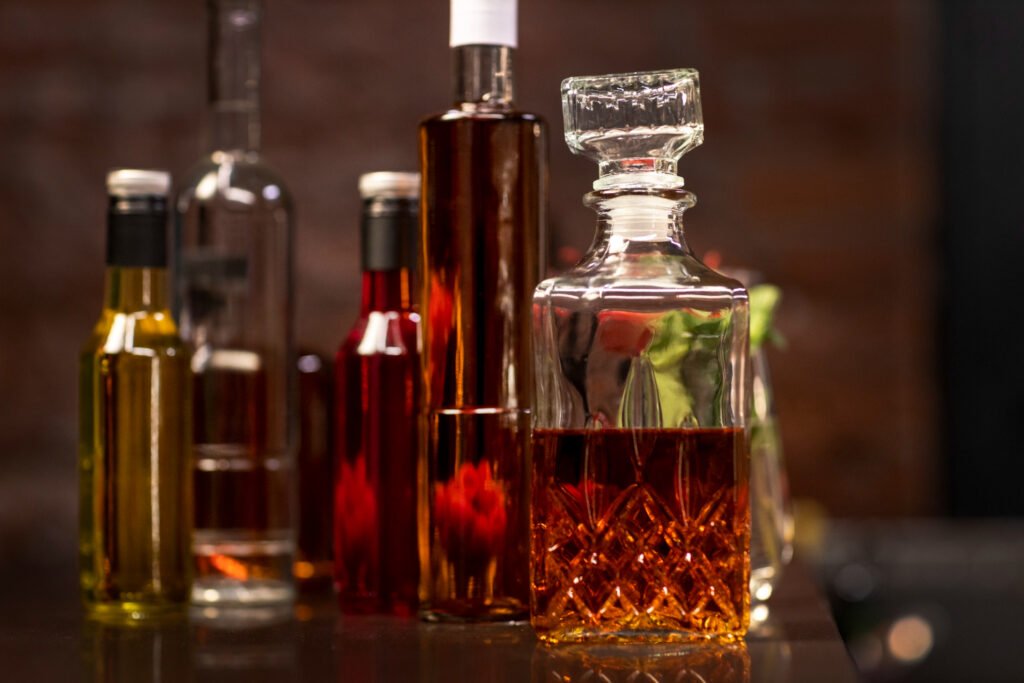
While moderate alcohol consumption may not cause harm, heavy drinking can raise blood pressure. Consuming more than the recommended limit of alcohol increases your risk of developing hypertension and can make managing blood pressure more difficult. Alcohol can also interfere with the effectiveness of certain blood pressure medications.
Alcohol consumption guidelines: It is recommended to limit alcohol to one drink per day for women and two drinks per day for men.
Healthy Alternative: Reduce alcohol intake and switch to non-alcoholic beverages like sparkling water, herbal teas, or kombucha.
6. Red Meat
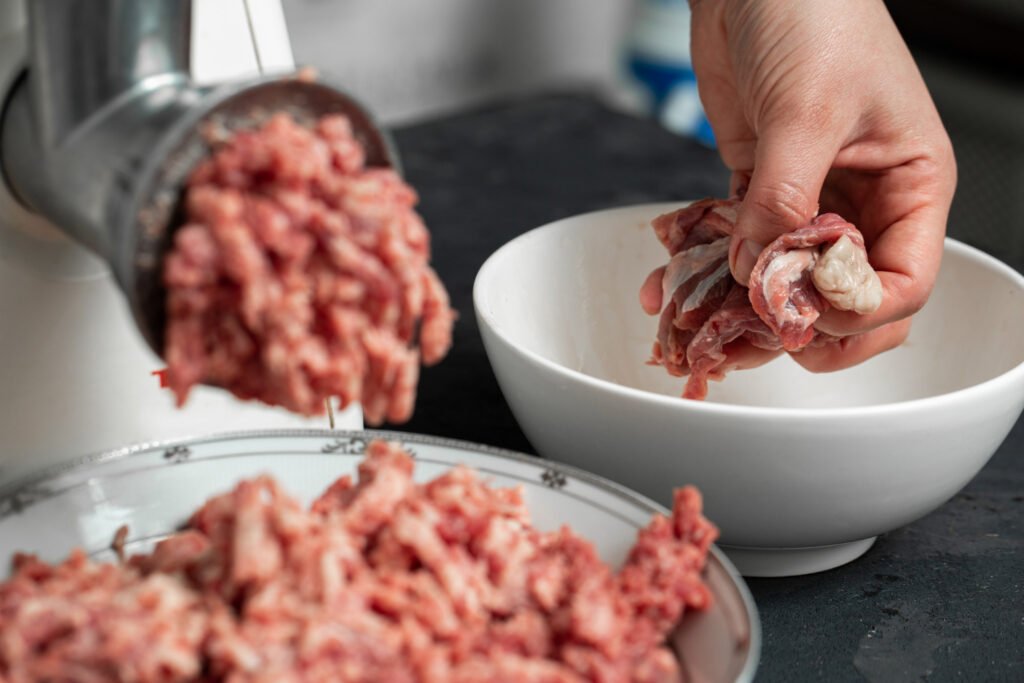
Red meat is high in saturated fats, which can lead to weight gain and increased cholesterol levels, both of which contribute to high blood pressure. While occasional consumption of lean red meat may not cause harm, frequent consumption can have a negative effect on blood pressure and heart health.
Examples of red meats:
- Beef
- Lamb
- Pork
Healthy Alternative: Swap red meat for lean proteins like chicken, turkey, fish, or plant-based options like tofu, beans, and lentils. These alternatives are lower in saturated fat and can help keep blood pressure in a healthy range
Related: Foods that Help Lower Blood Pressure
7. Caffeine

While the effect of caffeine on blood pressure can vary from person to person, it has been shown to cause temporary spikes in blood pressure, especially in those sensitive to its effects. For some, drinking excessive amounts of coffee, energy drinks, or caffeinated teas can contribute to long-term hypertension.
Caffeinated foods and drinks:
- Coffee
- Energy drinks
- Certain teas
- Some sodas
Healthy Alternative: If you’re sensitive to caffeine, try decaffeinated coffee or herbal teas. Staying well-hydrated with water also helps maintain healthy blood pressure.
Tips for a Heart-Healthy Diet
In addition to avoiding these high blood pressure-triggering foods, incorporating heart-healthy options into your diet is essential. Following the DASH (Dietary Approaches to Stop Hypertension) diet is a great way to manage blood pressure. This diet emphasizes the consumption of whole grains, fruits, vegetables, lean proteins, and low-fat dairy while reducing sodium and unhealthy fats.
Key components of a heart healthy diet include
- Fruits and Vegetables: Rich in potassium, which helps balance sodium in the body.
- Whole Grains: Include oats, brown rice, and whole wheat bread.
- Lean Proteins: Incorporate fish, poultry, beans, and legumes.
- Low-fat Dairy: Choose low-fat or fat-free milk, cheese, and yogurt.
- Healthy Fats: Use unsaturated fats like olive oil, avocados, nuts, and seeds.
The Takeaway
High blood pressure is a manageable condition, but it requires making conscious dietary choices. Avoiding foods high in sodium, trans fats, sugar, and alcohol can prevent blood pressure from rising and help maintain overall heart health. By replacing these harmful foods with healthier options, you can lower your risk of hypertension-related complications and lead a healthier life. Remember to consult your healthcare provider for personalized dietary advice based on your specific health needs.
Maintaining a heart-healthy diet is an ongoing process, but small changes can make a big difference. Stick with a well-balanced, nutritious eating plan, and take proactive steps to protect your heart for years to come
Frequently Asked Questions
Why is sodium bad for people with high blood pressure?
Sodium causes the body to retain water, which increases blood volume and raises blood pressure. Consuming too much sodium, often found in processed foods and fast food, can lead to hypertension over time. Reducing sodium intake helps maintain lower blood pressure and prevents strain on the heart and arteries.
Can I still drink coffee if I have high blood pressure?
For some people, caffeine can cause temporary spikes in blood pressure. If you’re sensitive to caffeine or already have hypertension, it’s best to monitor your blood pressure after consuming caffeinated drinks. If you notice a significant increase, consider switching to decaffeinated coffee or herbal teas.
Is it safe to eat red meat if I have high blood pressure?
Red meat is high in saturated fats, which can contribute to increased cholesterol levels and weight gain—both of which can raise blood pressure. While occasional lean red meat may be fine, it’s better to limit consumption and choose lean proteins like chicken, fish, or plant-based alternatives to help manage blood pressure effectively.











